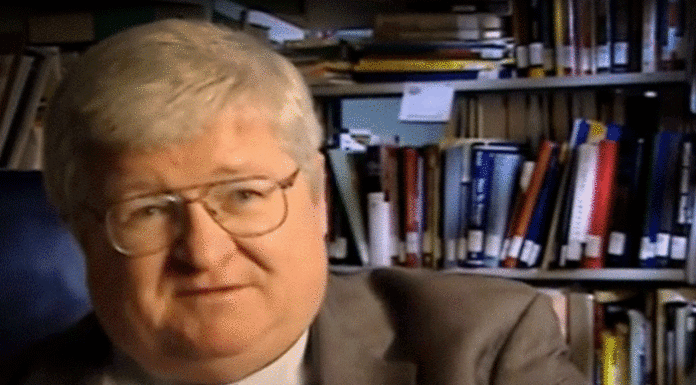After my late father-in-law, Reb Yisroel Yitzchok Cohen, z”l, was liberated from the last of the concentration camps where he was interned during the war, he intrepidly made his way back to his Polish hometown, Lodz, in order to find his sister Mirel (who is memorialized in my wife’s middle name). He had heard that she, too, had survived the war, and was there.
To his great anguish, my shver discovered that Mirel had indeed returned to Lodz, but, while searching the local cemetery for the graves of relatives who had perished in the Lodz ghetto, she was murdered by an unknown assailant.
When her friends reported her to the police as missing, they were told by an officer, “What’s your worry? So there will be one less Jewess in Poland.”
What brought that piece of personal history to mind was the fate of the Polish envoy entrusted several months ago with the mission of improving relations with Jews.
In a recent interview, the envoy, Jaroslaw Marek Nowak, addressed Poland’s 2018 law criminalizing claims that Poles were complicit in the Holocaust. Mr. Nowak called it “one of the stupidest” laws ever.
The law was born of Polish officials’ chagrin over the fact that concentration camps on Polish soil, like Auschwitz and Treblinka, where more than three million Jews died, have been called “Polish camps,” when Germans, not Poles, ran them. Their country, the Poles protested, was under occupation at the time.
True enough, but the indignation isn’t entirely righteous. Unless it includes an important caveat; the admission that many Poles were far from bystanders to the Holocaust.
If truth means anything—no obvious assumption these days—the fact that Nazi forces found Polish citizens all too eager to help them cannot be ignored.
Polish police forces and railroad personnel guarded ghettos and helped deport Jews to the killing centers. Individual Poles often pitched in, identifying and hunting down Jews in hiding, and then gleefully participated in the plunder of Jewish property.
In his 2000 book Neighbors, professor of Polish history, Jan T. Gross, now at Princeton University, carefully documented the fact that atrocities long blamed on Nazi officials were in fact carried out by local Polish civilians—an endeavor that led to his prosecution by Polish authorities for libel. (The case was eventually dropped.)
One fact Professor Gross uncovered was how Polish residents of Jedwabne eagerly massacred the town’s Jews in July 1941, mere weeks after Nazi forces arrived. Some of the Jews were hunted down and killed by the townsfolk with clubs, axes and knives. The rest were herded into a barn, emptied out for the purpose, which was set afire, burning all those inside to death.
To be sure, there were Poles who helped Jews, even risking their own lives to do so. Yad Vashem has recognized more than 6,000 of them as “Righteous Among the Nations.”
But the norm, sadly, was that Polish citizens were more likely than not to turn against their Jewish neighbors when circumstances permitted. There are numerous personal accounts of such hatred leading to murder. Not only throughout the war, but beyond it, as my wife’s aunt’s tragic fate illustrates.
And as does what happened in the Polish town of Kielce on July 4, 1946, where about 150 Jewish survivors had begun to rebuild their lives, establishing a shul and an orphanage.
The town’s non-Jewish inhabitants wasted no time in falsely accusing the Jews of kidnapping a Christian child. As police and soldiers stood by, a mob viciously murdered 42 of the innocent survivors and injured scores of others.
Anti-Semitism, in fact, was deeply entrenched in Polish society well before the Nazis invaded Poland. Before the war, my father, z”l, recalled being warned as a child by his parents in their town of Ruzhan to not venture outside around Pesach-time, when Catholic clergymen riled up the faithful. He and his siblings would peek through the window to see angry townspeople marching with banners, looking for Jews to kill or maim.
Back, though, to Mr. Nowak, the Polish envoy charged with soothing Polish-Jewish relations.
After the envoy’s unguarded criticism of the Polish law criminalizing the claim that Poles bore Holocaust-era guilt, the country’s Foreign Minister, Zbigniew Rau, fired him.





















